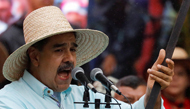▶ JOE NOCERA
In his conference call last Thursday, Jamie Dimon, the bank’s chief executive, characterized the trades as “stupid,” but refused to get into any specifics. Even hedge fund managers on the other side of the JPMorgan trades have been able to cobble together only bits and pieces. Most of the emphasis has been on the credit derivative business managed by one Bruno Iksil in JPMorgan’s London office — a k a the “London whale.” Yet from what I hear, his losses probably won’t total more than $600 million — while the bank’s total losses have reached $2.3 billion, and could well hit $4 billion, according to The Wall Street Journal. Where are the rest of the losses coming from? As I say, nobody knows.
Still, we know enough to be able to make some informed judgments. We know that JPMorgan, awash in taxpayer-insured deposits, took some of that money — around $62 billion at last count — and decided to invest it in corporate debt, which had the potential to generate higher returns than, say, old-fashioned loans. Citigroup and Bank of America, chastened by the financial crisis in ways that JPMorgan was not, had far less invested in such securities.
We know that JPMorgan’s chief investment office, which had orchestrated the debt purchases, decided to hedge the entire portfolio by selling credit default swaps against a corporate bond index. You remember our old friends, credit default swaps, don’t you? Three years ago, they nearly brought down the financial world. Not content with its hedge, it then hedged against the hedge. It was all very complex, of course, and all done in the name of “risk management.”
We also know that Ina Drew, a JPMorgan veteran who headed the chief investment office — and who departed on Monday — made $14 million last year. Wall Street executives who make $14 million are not risk managers. They are risk takers — big ones. And genuine hedging activity does not cost financial institutions billions of dollars in losses: their sole purpose is to protect against big losses. What causes giant losses are giant, unhedged bets, something we also learned in the fall of 2008.
Thus, the final thing we know: At JPMorgan, nothing changed. The incentives, the behavior, even the trades themselves are basically the same as they were in the run-up to the financial crisis. The London whale was selling underpriced “credit protection.” Isn’t that exactly what A.I.G. did? The only difference is that JPMorgan has the balance sheet to absorb the losses that Iksil and his colleagues have racked up. That is small comfort.
In recent years, whenever I heard Dimon defend derivatives, he cast it as something banks had to offer their clients. Caterpillar, he liked to say, needed to hedge its exposure to foreign currency shifts, which JPMorgan’s derivatives made possible. But what client was being served with these trades? They were done for the bank, by the bank, solely to fatten the bank’s bottom line.
Which brings us, inevitably, to the Volcker Rule, that part of the financial reform law intended to prevent banks from doing what JPMorgan was doing: making risky bets for its own account. JPMorgan executives have insisted in recent days that the London trades did not violate the Volcker Rule (which, for the record, has not yet taken effect). But that is only because the banks have lobbied to protect their ability to hedge entire portfolios. A letter to regulators written in February by a top JPMorgan lobbyist — a letter denouncing the potential effects of a strictly interpreted Volcker Rule — describes a trade that sounds exactly like the ones that have just caused all the problems. Such trades need to be preserved, the lobbyist argues.
Actually, they don’t. “I just want all this garbage out of insured banks,” said Sheila Bair, the former head of the Federal Deposit Insurance Corporation. “A bank with insured deposits should be making loans. If they have excess they should put the money in safe government securities. If they want to trade, set up separate subsidiaries that have higher capital requirements.”
What banking most needs is to become boring, the way the business was before bankers became addicted to trading profits. But if that were to happen, Ina Drew wouldn’t make $14 million. Safer banking means lower profits, which means smaller compensation packages. That is precisely what JPMorgan’s London traders were trying to avoid.
“Paul Volcker by his own admission has said he doesn’t understand capital markets,” Dimon has famously said. What Volcker understands is far more important: the behavior of bankers.
Happily, the recent behavior of JPMorgan’s London traders could well cause regulators to put in place a Volcker Rule so tough that it would make banking boring again. One can only hope.
스마터리빙
more [ 건강]
[ 건강]이제 혈관 건강도 챙기자!
[현대해운]우리 눈에 보이지 않기 때문에 혈관 건강을 챙기는 것은 결코 쉽지 않은데요. 여러분은 혈관 건강을 유지하기 위해 어떤 노력을 하시나요?
 [ 건강]
[ 건강]내 몸이 건강해지는 과일궁합
 [ 라이프]
[ 라이프]벌레야 물럿거라! 천연 해충제 만들기
 [ 건강]
[ 건강]혈압 낮추는데 좋은 식품
[현대해운]혈관 건강은 주로 노화가 진행되면서 지켜야 할 문제라고 인식되어 왔습니다. 최근 생활 패턴과 식생활의 변화로 혈관의 노화 진행이 빨라지고
사람·사람들
more많이 본 기사
- 굽히지 않는 젤렌스키…트럼프에 역제안 카드로 레드라인 저지
- TV 나와 암투병 근황 공개한 찰스 英국왕… “조기검진 중요해요”
- 신혼부부 ‘역대 최저’ 24%는 3억 이상 대출
- 통일교 특검 대신 “내란 2차 특검”… 민주당 ‘철벽 방어’
- 제미나이 추격 오픈AI 새 모델 GPT-5.2 조기 공개
- 국힘·개혁신당 “통일교 특검 수용하라”…與 “정치공세·물타기”
- 송지효 “’런닝맨’ 출연 중 8년 ♥장기 연애했다” 폭탄 고백..멤버 모두 ‘충격’
- “한국, 재래식 방위주도” 한미 핵협의그룹 첫 명시
- AI공급망 동맹 ‘팍스 실리카’ 8개국 참여
- 한국도 참여한 美주도 AI 동맹 “비시장적 관행에 공동 대응”
- 변요한♥티파니, 결혼 전제 열애 인정
- ‘고가 논란’ 북중미 월드컵 티켓, 판매 첫날 500만건 신청
- ‘공공임대, 역세권에 국평으로’ 주문한 이대통령
- 주한미군사령관 “전작권 전환, 시기보다 조건 봐야”
- 한화, 호주 방산업체 최대주주 된다
- 선교사 아들 가나대사로 금의환향… “한국·가나는 두 어머니”
- “보안사고 반복 땐 과징금 폭탄”… 해킹과 전면전 선포한 과기부
- 종묘 일대 세계유산지구로 세운4구역 개발 영향 줄까
- 미일 ‘팍스 실리카’ 협력 문서 서명
- MD여성골프협, 따듯한 연대로 마무리
- “’삐빅’ 비트코인으로 결제할게요”…맥도날드·편의점서도 쓴다는 ‘이곳’, 어디?
- FDA, 우울증 치료 ‘뇌 자극’ 가정용 헤드셋 기기 첫 승인
- ‘양육비 미지급’ 김동성 “내가 月700만원? 통장 압류된 신용불량자”
- ‘정국 열애설’에 뿔난 아미 ‘워워’..BTS 완전체, 전역→웃으며 연습실 회동 첫 인증샷
- 김지민 “유부남과 불륜, 날 알리바이로 이용”..친구와 손절한 사연 [이호선의 사이다]
- <부음> 이명무 전 SF 체육회장 부인상
- 19개주, 트럼프 전문직 비자 ‘10만불 수수료’에 소송
- “귀금속 역사상 가장 극적인 재평가”…올해는 銀이 金 앞섰다 [공준호의 탈월급 생존법]
- ‘나혼산’ 박나래, 흔적도 없이 하차… 1
- 워싱턴주 홍수로 수만명 대피…주지사 “유례없는 상황 직면”
- “엔비디아, 中수요 반영 H200 증산”…일각선 “中, 수입거부할듯”
- “머스크의 X, 3분기 매출 7억 달러대…순손실 5억 달러대”
- 美 레전드 깜짝 전망 “한국, 북중미 월드컵 A조 1위로 32강”
- 한국 교사 10명, 페어팩스 초등교 배치
- “헉, AI가 만든 사진일 줄”…발등에 ‘귀’ 달고 다닌 30대 中 여성, 도대체 왜?
- 뉴욕증시, 브로드컴 비관론에 AI 테마 ‘와르르’…나스닥 1.7%↓ 마감
- 트럼프, 중남미 마약카르텔 공습 확대의지… “지상서도 시작한다”
- 젤렌스키 측근 협상가가 FBI국장을 왜?…비밀회동 목적 의문
- 美지상작전 임박설 속 베네수 이민자 송환 중단 놓고 ‘혼선’
- 김하성-ATL, 이대로 헤어지나→윈터미팅서만 무려 1005억 지출해버렸다
- 민주, 트럼프와 여성들 함께 찍힌 ‘엡스타인 사진’ 공개…엡스타인 저택서 확보한 19장에 빌 클린턴·빌 게이츠 등 유명 인사
- “산타 분장하고 아이들과 만났는데”…교사 출신 60대 남성, 성범죄 혐의에 美 ‘발칵’
- 초강경 추방 드라이브… 한인사회 불안감 확산
- 우크라 “러 점령 쿠피안스크 일부 탈환”…젤렌스키 방문
- 챗GPT서 ‘포토샵’ 무료 오픈AI·어도비 합의 발표
- “20분이면 샤워·건조까지 풀코스로”…상상 속 ‘인간 세탁기’ 드디어 첫 가동, 가격 보니
- “말이 참 기십니다”…李대통령, ‘尹… 1
- “마약밀매·인신매매 등 국제범죄 척결” ‘국토안보 태스크포스’ 뉴욕지부 출범
- 쿠팡 美소송 신청자, 나흘 만에 2000명 이상 증가… “연내 소장 제출”
- 미네소타 보조금 사기, 안보 문제로 비화…월즈 ‘곤혹’
1/5지식톡

-
 테슬라 자동차 시트커버 장착
0
테슬라 자동차 시트커버 장착
0테슬라 시트커버, 사놓고 아직 못 씌우셨죠?장착이 생각보다 쉽지 않습니다.20년 경력 전문가에게 맡기세요 — 깔끔하고 딱 맞게 장착해드립니다!장착비용:앞좌석: $40뒷좌석: $60앞·뒷좌석 …
-
 식당용 부탄가스
0
식당용 부탄가스
0식당용 부탄가스 홀세일 합니다 로스앤젤레스 다운타운 픽업 가능 안녕 하세요?강아지 & 고양이 모든 애완동물 / 반려동물 식품 & 모든 애완동물/반려동물 관련 제품들 전문적으로 홀세일/취급하는 회사 입니다 100% …
-
 ACSL 국제 컴퓨터 과학 대회, …
0
ACSL 국제 컴퓨터 과학 대회, …
0웹사이트 : www.eduspot.co.kr 카카오톡 상담하기 : https://pf.kakao.com/_BEQWxb블로그 : https://blog.naver.com/eduspotmain안녕하세요, 에듀스팟입니다…
-
 바디프렌드 안마의자 창고 리퍼브 세…
0
바디프렌드 안마의자 창고 리퍼브 세…
0거의 새제품급 리퍼브 안마의자 대방출 한다고 합니다!8월 23일(토)…24일(일) 단 이틀!특가 판매가Famille: $500 ~ $1,000Falcon: $1,500 ~ $2,500픽업 & 배송직접 픽업 가능LA…
-
 바디프렌드 안마의자 창고 리퍼브 세…
0
바디프렌드 안마의자 창고 리퍼브 세…
0거의 새제품급 리퍼브 안마의자 대방출 한다고 합니다!8월 23일(토)…24일(일) 단 이틀!특가 판매가Famille: $500 ~ $1,000Falcon: $1,500 ~ $2,500픽업 & 배송직접 픽업 가능LA…
케이타운 1번가
오피니언

22기 LA평통 출범에 거는 기대

연말 시즌 사기·범죄 경계해야
 메건 매카들 워싱턴포스트 칼럼니스트
메건 매카들 워싱턴포스트 칼럼니스트 [메건 매카들 칼럼] 장편영화의 마지막 챕터인가
 김미선 서북미문인협회 회장시인
김미선 서북미문인협회 회장시인 [한국춘추] 하늘을 계산한 사람들, 칠정산
 이희숙 시인·수필가
이희숙 시인·수필가 [금요단상] 그을린 자리에서 다시
 심상용 / 서울대 미술관장
심상용 / 서울대 미술관장 [미술 다시보기] 지옥에 대하여
 서정명 / 서울경제 기자
서정명 / 서울경제 기자[만화경] 주한미군과 ‘도련선 리스크’
 한 영 재미수필가협회 회장
한 영 재미수필가협회 회장 [한영의 독서칼럼] 불안한 사람들
 정영현 서울경제 테크성장부장
정영현 서울경제 테크성장부장 [여명] 콘크리트가 데이터가 됐을 뿐, 달라진 게 없다
1/3지사별 뉴스

“마약밀매·인신매매 등 국제범죄 척결” ‘국토안보 태스크포스’ 뉴욕지부 출범
연방 국토안보부가 10일 ‘국토안보 태스크포스’(HSTF) 뉴욕지부를 출범시켰다.HSTF는 마약 카르텔, 인신매매, 자금세탁, 갱단 등 국제범…
‘오바마케어 보조금’ 올해 말 종료 가능성 ↑ 커져

한국 교사 10명, 페어팩스 초등교 배치
‘글로벌 앰버서더 티처스 프로그램’(Global Ambassador Teachers Program)은 국제 교사 교환 프로그램 가운데 하나로 …
김찬수씨, 포토맥 포럼에 2천달러 기부

초강경 추방 드라이브… 한인사회 불안감 확산
도널드 트럼프 행정부가 출범 직후 불법체류자 100만 명 추방 목표 달성을 위해 초강경 조치를 본격화하면서 미주 한인사회에 불안감이 심각하게 …
<부음> 이명무 전 SF 체육회장 부인상

오늘 하루 이 창 열지 않음 닫기 





















































.png)


댓글 안에 당신의 성숙함도 담아 주세요.
'오늘의 한마디'는 기사에 대하여 자신의 생각을 말하고 남의 생각을 들으며 서로 다양한 의견을 나누는 공간입니다. 그러나 간혹 불건전한 내용을 올리시는 분들이 계셔서 건전한 인터넷문화 정착을 위해 아래와 같은 운영원칙을 적용합니다.
자체 모니터링을 통해 아래에 해당하는 내용이 포함된 댓글이 발견되면 예고없이 삭제 조치를 하겠습니다.
불건전한 댓글을 올리거나, 이름에 비속어 및 상대방의 불쾌감을 주는 단어를 사용, 유명인 또는 특정 일반인을 사칭하는 경우 이용에 대한 차단 제재를 받을 수 있습니다. 차단될 경우, 일주일간 댓글을 달수 없게 됩니다.
명예훼손, 개인정보 유출, 욕설 등 법률에 위반되는 댓글은 관계 법령에 의거 민형사상 처벌을 받을 수 있으니 이용에 주의를 부탁드립니다.
Close
x